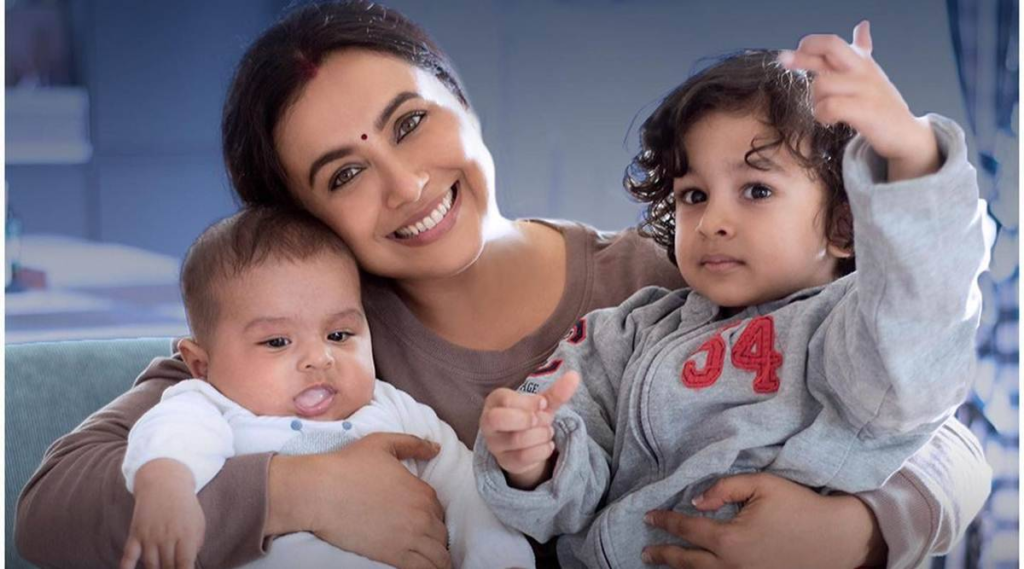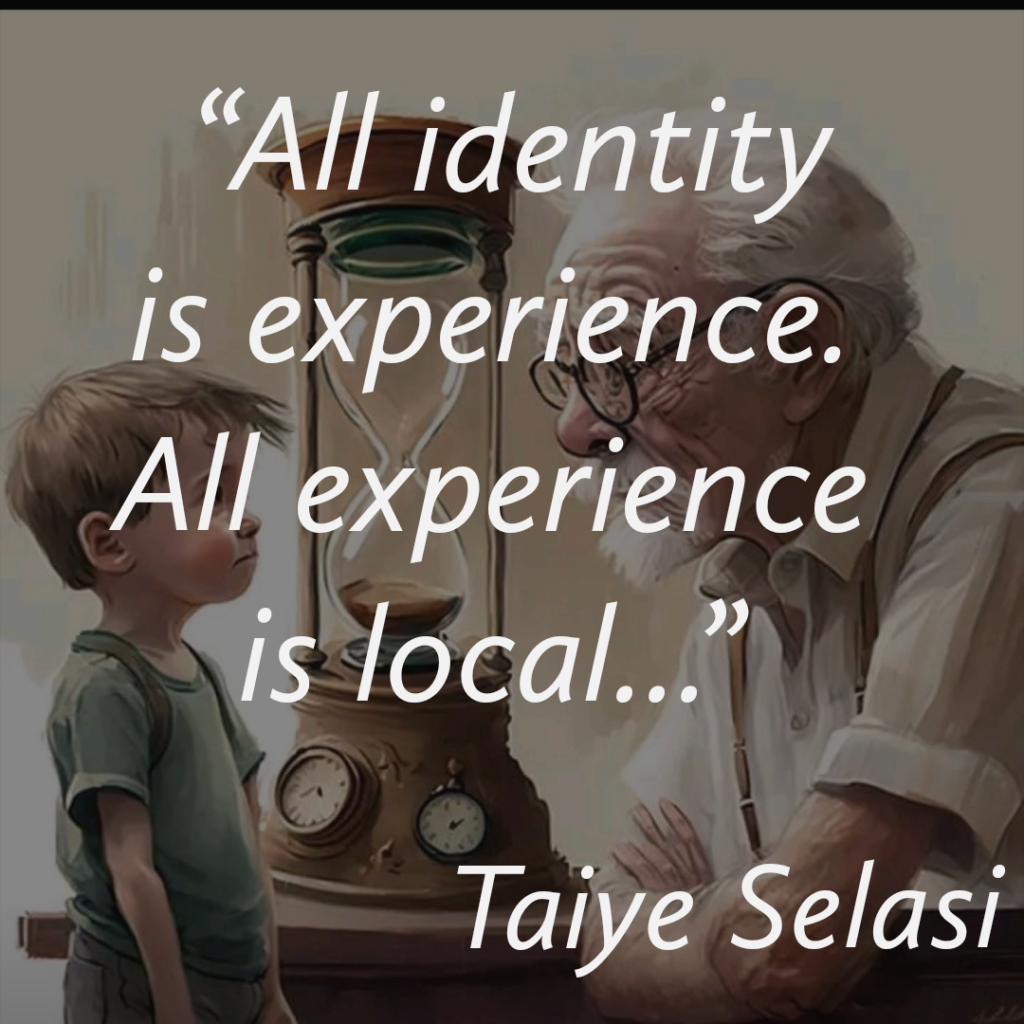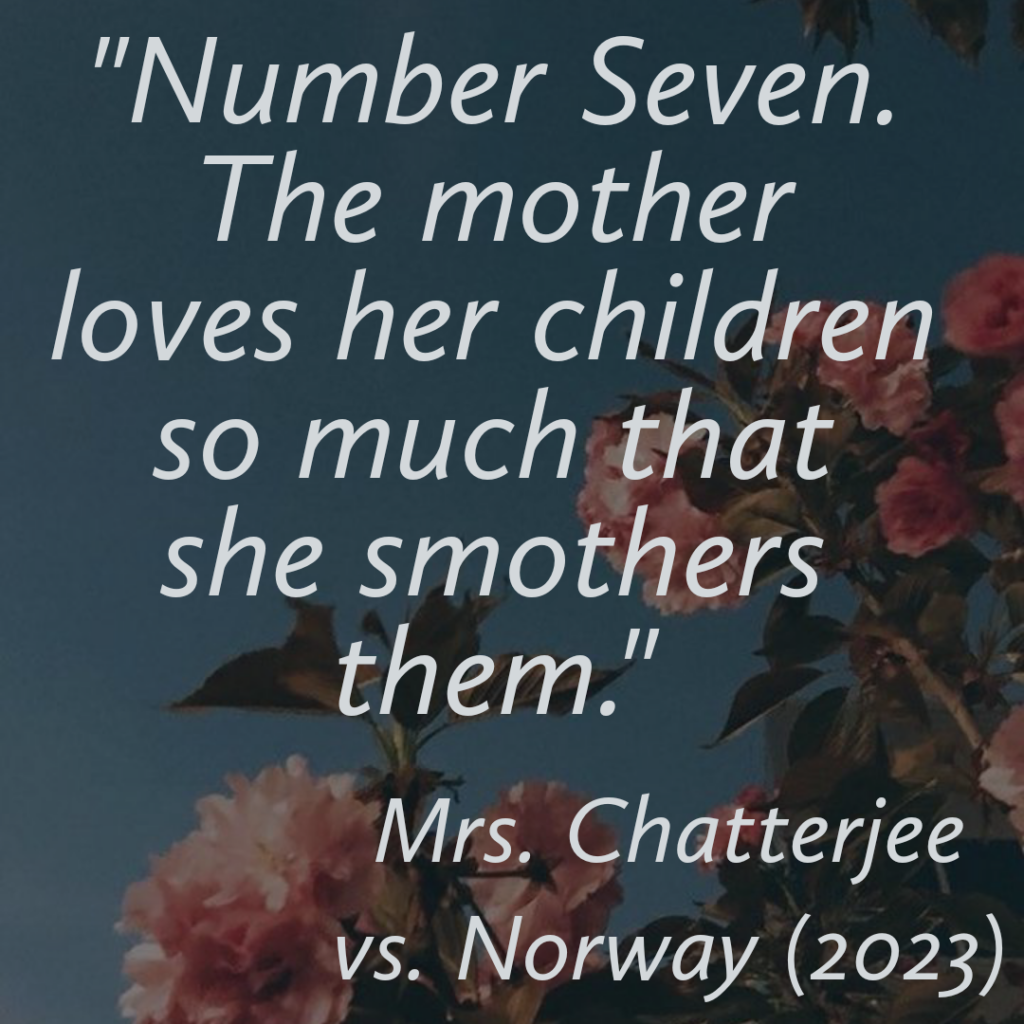Synopsis of Mrs. Chatterjee vs. Norway (2023)
What does one do when everything they know and are a part of is termed “wrong”? What is a mother to do when entire systems, bodies, and countries tell her she is unfit to care for her children? Who should a woman turn to when her husband stabs her in the back and conspires with his family to keep her away from her children? She keeps fighting and doesn’t stop until her children are back in her arms.
Mrs. Chatterjee vs. Norway (2023) is the story of one woman’s one-man battle against the country of Norway and its social services system. Following a ten-week evaluation by social workers from Velfred, Mrs. Chatterjee’s children are taken from her. The verdict?
Mrs. Debika Chatterjee is an unfit mother.
Due to claims of spousal violence, Velfred also believed the Chatterjee home was not a safe place to raise the children. Debika sues Velfred and tries her best to get her children back. But every decision she makes worsens the situation and strengthens the opposition’s case. The movie is based on a true life story and how Mrs. Sagarika Chakraborty fought against the Norwegian government to reunite with her kids.
Analysis
When I think of Norway, I think of many things. I think northern lights, the songstress, Aurora, and miles of land covered in snow.
Of stockfish and my friend, Rubie, who is convinced she was meant to be Norwegian and not Nigerian. Of tall, blond men and my favorite influencer Fumi Desalu-Vold.
But Mrs. Chatterjee vs. Norway (2022) created a new file in my Norway folder. From the feasibility of traditional family dynamics in the modern world down to the penchant of immigrants to bend themselves into a pretzel to achieve settled status, the film presents an entire charcuterie board of themes. First off, I have to commend everyone that worked on this film. The acting was spot on. The plotting and scene arrangements inserted us into Mrs. Chatterjee’s headspace, making it easy to identify with her pain and frustration. When watching this film, I had so many questions.
Does anyone have any right to tell a mother the right way to mother her children?
At what point does the head-spinning love we see in wedding photos become indifference, or worse, persistent irritation?
Should the maxim ‘when in Rome, act like the Romans’ apply to all facets of an immigrant’s life?
Do all these systems instituted in Western countries really have their beneficiaries’ interests at heart, or is it just a case of one bad apple running the barrel?
Some of these questions I had answers to. For the rest, I am still searching for answers.
Mothers are Humans First

“God could not be everywhere, so he made mothers…”
This quote by Rudyard Kipling exemplifies how we think of and believe mothers should be.
When you open your social media on any of the three million Mother’s day we have, you will see different messages:
Odes to mothers who did it all alone while looking flawless and bagging three postgraduate degrees.
Mothers that starved so their kids could eat.
Vote of thanks to married single mums who had to be both dad and mum to their kids because their partner couldn’t be bothered.
Amid this storm of praises is the unconscious belief that mothers are superheroes, deities of sorts, as Mr. Kipling put it. We believe they are made of stardust and hardier stuff than the rest of us. This, my friend, is the danger of pedestalization. Pedestals are very lonely places, and sooner or later the people atop them tumble down. Because of these beliefs and the unattainable metrics we use in measuring the value of mothers, we can be impatient when some mothers don’t live up to these standards. While they may be superheroes to the people they love and care for, mothers are not superhuman. They forget things and make mistakes. They mix up birthdays, forget to buy the milk, and are too tired to clean. And instead of judging them and asking them to be like other ‘supermoms,’ we should treat them with kindness.
In Mrs. Chatterjee vs. Norway (2023) one point the reps from Velfred (the Norwegian Welfare Services) brought up to prove Debika was an unfit mother was the state of her house. Her house, it was said, was untidy. As we watch the movie, we see other things that Debika forgets to do: she forgets to pack her son’s school bag and forgets his ‘tree of life’ school project.
But context is important.
Her five-month-old infant, Suchi, was colicky and hadn’t slept for two nights, so Debika was understandably stressed. It was the first time she was committing these sins of omission. Even if it wasn’t, she’s human, and humans forget things. Unfortunately, the Velfred reps had given Debika a bad name and were hellbent on hanging her. They were so committed to this mission they insisted on doing a final review the next day, even though they knew Suchi was ill and desperately needed her vaccination. This singular act shows that the children were not their focus. The children were just stats on a bar chart, and Debika was a pesky annoyance that was getting in the way of their job.

While many people hold mothers in high regard and see them as an essential and vital part of society, it is surprising that many people look down on stay-at-home moms (SAHMs). People believe their job is easy and that anyone can do it. But it is not. Running a house is a full-time job. Being a SAHM is a full-time job. With it, you are a wife, mother, cleaner, financial planner, cook, nurse, lawyer/mediator, therapist, cheerleader, and so on.
After Velfred takes away their children, Anirudh complains bitterly about the issues the welfare service tabled against them. He was especially annoyed at the point about the cleanliness of the house. He tells Debika that she had one job and she couldn’t even do that right. With this simple statement, Anirudh shows that he believes Debika’s role as a mother is an easy one to play. However, from previous interactions between Anirudh and his kids, we see that he doesn’t even know how to engage with and care for them like Debika does.
Marry Someone that Likes You
When we talk about choosing life partners, we often consider things like attraction, personality, earning potential, and family background. But two things I think are important is marrying someone who is kind and likes you.
Not love. Someone that likes you first.
Just like the word ‘literally,’ ‘love’ has been so misused and overused in current society that it has lost all substance. In modern romantic spaces, love more or less now refers to the heady attraction and pull we feel when we meet someone exciting. This feeling fades. What remains and sustains the marriage is nonsexual affection, a deep desire to make this person happy and always bring them peace. If it is missing in the earlier stages, the marriage will crumble when the butterflies and the effervescence of ‘love’ dissipate.
Anirudh ‘loves’ Debika. He says it himself. His love was so consuming and all-encompassing that he forced her to marry him. Following the montage of their relationship, we can see that Anirudh is enamored by his new bride, but things change somewhere along the line. He is snappy with her, cuts her off mid-sentence, always shouts at her, and belittles her. Proving that love and hate are really both sides of a coin, Anirudh once beat Debika—a woman he claims to love so much—so hard that her hand broke. When questioned about this, he replies: ‘So what? She’s my wife.’
Anirudh may have been infatuated with Debika. I can even stretch it and say that he ‘loved’ her, whatever that means. However, he never liked her. A man that likes you will not beat you, nor will he always make you feel like a recalcitrant child. When a man truly loves you, he will try to make your journey in life easy and lighten your load any way he can. He will not refuse to help you with something as simple as packing his son’s bag. The hydra of Anirudh’s dislikes reveals itself in its entirety when to save himself and his citizenship, he claims that Debika is mad and mentally unstable.
A Man is a Product of His Family
In my culture, we believe that when you marry a person, you marry their family. This belief stems from the knowledge that as the family is a primary agent of socialization and a person—all things being equal—is a product of their immediate family. If a (wo)man’s family is good, they will most likely be good.
And if they aren’t, well, that’s how the cookie of your life will crumble.
In Mrs. Chatterjee vs. Norway (2023), Anirudh Chatterjee is portrayed as a coaster parent. He is here for a good time and not a long time. When the kids are having fun and being amenable, he puts on his parenting crown. But when they start acting up—as kids do—he flees and leaves Debika on cleanup duty.
When we finally meet the senior Mr. and Mrs. Chatterjee, we understand why Anirudh is how he is. Like most sons from traditional households, Anirudh and his brother, Anurag (Soumya Mukherjee), are treated like adult babies by their mother. Anirudh’s mother doesn’t address the domestic violence concerns brought up by the Velfred agents. However, she doubles down on the concerns raised against Debika. In her words, all this is happening because Anirudh—that beats his wife and bans her from meeting her friend—gives Debika too much freedom.
In the 70 mins that they featured in the film, there was never a point where Debika’s in-laws showed compassion to her or concern for the fate of their grandchildren. My already subterranean impression of them went even lower when Anurag agreed to a Ponzi scheme of sorts with the Velfred agents. Debika’s children are his niblings, his own flesh, and blood. However, he pushed aside all concerns for them and got into bed with Velfred because of financial gain.
The Shadow Side of Immigration

Immigration is an osmosis of people from a region of low security and low resources to a region of higher security, resources, and job opportunities. While we can all agree that immigration brings many benefits, it also brings negatives that are rarely discussed but beautifully shown in Mrs. Chatterjee vs. Norway (2023):
Home is Nowhere
Can you change yourself?
This is the question Anirudh asks Debika when she inquires if resolving all the issues on Velfred’s list would make the government return her children. Anirudh’s question captures the core of what it means to be an immigrant.
Of trying to define, undefine and redefine yourself.
At different points in Mrs. Chatterjee vs. Norway (2023), Anirudh had to remind Debika that ‘this is not India. they have to follow the rules and regulations.’ Put simply, when in Rome, act like the Romans.
In her TED Talk, Nigerian-Ghanian-American-British author and photographer Taiye Selasi proposes a three-way test to determine where someone is from:
- What are their rituals?
- Where is the critical mass of their substantial relationships aggregated?
- What are their restrictions?
Debika lives in Stavanger, Norway, and has adopted some practices of her host country. However, most of daily her rituals are that of the global East. She celebrates Diwali, eats with her hands, uses Indian homeopathic medicine, and wears her saris. Anirudh, for all his Westernization, still has rituals and beliefs that drag him back to India. This is seen in his marital dynamic and belief that calling someone from behind brings bad luck. In the relationship sector, the bulk of the Chatterjee’s relationships still revolve around India and migrants from India. In the area of restrictions, I will shift away from the Chatterjees for a minute and focus on Rabia Hussain, a lawyer, and a shopkeeper.
A bizarre job combination.

Rabia Hussain has walked the path that Debika is on. However, this and the tea she has on Velfred is not what made her an interesting character. Rabia was a lawyer in her home country. Unfortunately, due to restrictions, as Selasi puts it, Rabia cannot practice in Norway.
Last year, I lost my uncle. He had lived in London for over fifty years. He longed for a time when he could return to Nigeria permanently. But as the state of the country worsened, bit by bit, he tore down any dreams of returning. As it is frowned upon in my tradition for a respected man to be buried abroad, he was brought back to Nigeria and buried in his obi—his family home—according to demands of Igbo culture, One day, while thinking of her father, my cousin said she wished he was buried in London. Somewhere she could visit often and lay flowers on his grave.
But that wasn’t the case.
He was now 3000+ miles away in a country she could only visit once in a while. In her talk, Selasi eloquently concludes that “our experiences are where we are from.” Based on this, where will one say the Chatterjees, Rabia, my cousin and uncle are from?
The Birth of a Mercenary

Although his children had been taken from him and grief was making his wife unravel at the end, Anirudh Chatterjee seemed way more concerned about his citizenship than maintaining the cohesion of his family. While Debika complained that her son needed her and her daughter needed to be breastfed, Anirudh’s complaints revolved around work and his citizenship application. At different turns, he is heard saying things like:
Do you have any idea how this will affect my citizenship application?
Do you have any idea how this will affect my bloody image in the office?
Like most migrants who have diffused from a place of lesser opportunities to the wealthier abroad, the golden cup of citizenship is all that matters to Anirudh. Everything else—sadly—pales in comparison. He is the epitome of naturalization. At different points in the movie, we see how badly Anirudh wants his citizenship. He:
- Picks up after Debika when she was littering communal spaces
- Speaks impressive Norwegian
- Dresses like a Westerner
- Has never gotten a parking ticket,
- Insists Debika spoon-feeds Shubh, although he knows Shubh will not eat if you feed him with cutlery
- Is excessively deferential to authorities and natural Norwegians while being short with his wife and fellow Indians.
While I can understand and empathize with Anirudh’s journey to citizenship—especially when you realize he supports his parents and brother financially—I believe our goals should also make space for our emotions. We can pursue what we want while still stopping to acknowledge other things going on in our lives.
One Negative Outweighs Ninety-Nine Positives

When Anirudh and Debika were quarreling, Debika, in a fit of hysteria, grabbed the wheel and spun the car. Anirudh regained control of the car. However, he rattled another driver on the lonely road. He got out and apologized profusely. The other driver tossed him a caustic, ‘Bloody foreigner’ and drove away in a screech of wheels. Anirudh stands there, relieved that it was just words, but still visibly hurt and scared. In the mathematics of immigration, one negative carries more weight than ninety positives. As a testament to his meticulousness, Anirudh had never gotten a parking ticket. He was a model citizen, but the instant he made a mistake, he was reminded that he was and would always be a foreigner.
Cada Loca Con Su Tema
Cada loca con su tema…each mad person with his own load.
I like this Spanish spin on the English aphorism of “to each your own” as it perfectly illustrates how what we hold dear can look like junk to other people.
At different plot points, Mrs. Chattterjee vs. Norway (2023) reminded me of some lines from Rudyard Kipling’s poem, We and They.
Father, Mother, and Me
Sister and Auntie say
All the people like us are We,
And everyone else is They.
And They live over the sea,
While We live over the way,
But – would you believe it? – They look upon We
As only a sort of They!
We eat pork and beef
With cow-horn-handled knives.
They who gobble Their rice off a leaf,
Are horrified out of Their lives;
And They who live up a tree,
And feast on grubs and clay,
(Isn’t it scandalous?) look upon We
As a simply disgusting They!
Diversity is beautiful. As Debika’s first lawyer, Sunil Kapoor puts it, diversity doesn’t break up our society; it enriches it. With diversity, the aim should be to understand, not condemn. While I grew up in a country with diverse people, relocating to England was what really drove home the importance of diversity. As an Igbo girl growing up in the Southeastern part of Nigeria, I always saw the tag ‘halal’ on different food packages (Indomie noodles particularly). I assumed it was a brand name like Unilever. However, when I started living in England and working at schools with an appreciable number of Asian and Muslim people, I learned that halal translated to “allowed” and was used to show foods prepared/slaughtered in adherence to Allah’s laws. Asking questions was all it took to dispel my ignorance.
Most of the concerns raised about Debika’s parenting in Mrs. Chatterjee vs. Norway (2023) were mostly cultural. I believe these wouldn’t have been issues if the social workers had actually engaged with her and tried to understand Debika and her culture. They had a problem with her hand-feeding her kids and even termed it ‘force-feeding’ in their list of concerns. In one scene, the camera captures the disgust on their face as Debika feeds her son, Shubh, with her hands.
But there is a cultural context to this.
The Hindus believe that a mother’s hands are blessed by God. So when she hand-feeds her child, she is essentially blessing him. In Ayurvedic teachings, the five fingers of each hand are seen as an extension of the five elements or doshas (space, air, fire, water, earth). Thus, in eating with the hands, you balance all these elements and come to a fuller awareness of all the textures in the food. The fingers are also believed to have many pressure points which support digestion. So touching food stimulates those pressure points and makes for seamless digestion. As someone from a culture where people also eat with their hands, I have to add that it is very hygienic, contrary to popular belief. We endeavor to wash our hands thoroughly before and after eating.

Velfred also complained about Debika applying kohl on her child’s eyes and sleeping with her children on the same bed. Today, kohl (also called kajal or surma in Asiatic and middle eastern cultures) is globally applied for aesthetic purposes. However, while the rest of the world is using it to tight-line and wing their eyes, Indians have other reasons for applying kohl to the face, and some of them are:
Protection from the evil eye: At the beginning of the movie, we are told that Suchi is feeling poorly. Well, Hindus believe that infants and children are especially vulnerable to negative energies and the evil eye. The easiest way to ward off these energies, without subjecting the child to too much stress, is by applying kohl to the face.
Eye care and hygiene: Kohl is believed to keep the eye clean by stopping dust and dust-borne pollutants from entering the eye. Surma (traditional kohl) is made from medicinal herbs which have therapeutic properties and prevents infection and other eye-related issues.
As for the point about co-sleeping, when children are very young and prone to waking up at night, it is more practical to have them sleep in the same bed with their parents. Co-sleeping also has a myriad of benefits like strengthening the bond between mother and infant, reduction of post-natal depression, calibrating the child’s circadian rhythm, promoting breast milk production, and reducing nighttime crying.
Adoptive Parents vs. Birth Parents

While I resonated with most of the themes addressed in this movie, one thing I disagreed with was the insistence that biological mothers are better than adopted mothers. For me, the answer is more nuanced than that. In my culture we have a saying: omulu zuo…the one that births, should raise the child. This comes from the belief that no one will treat a child better than its biological parents. This can be true in some cases, not all.
Motherhood—and by extension parenthood—is a function of action, not biology. Giving birth to a child makes you a mother in name. That’s all. What really cements that status is your subsequent interactions with the child. There are good biological mothers and bad ones. And for all the stories we have heard about terrible step and adoptive parents, there are ones who put their biological counterparts to shame.
I love how Debika’s lawyer, Daniel Ciupek Singh (Jim Sarbh) put this assumption to bed. Daniel was born Indian but raised by Norwegian parents. And from his current career and personal trajectory, they did a fabulous job. Debika’s children are also very lucky. Fate rarely smiles on people twice within a short period, but it did for them. While their loving mother was fighting to bring them home, Shubh and Suchi got amazing adoptive parents that wanted and loved them as much as Debika did.
Verdict

I love movies like Mrs. Chatterjee vs. Norway (2023). Movies like this entertain and force us to ask ourselves important societal questions. While it is normal for people in developing countries to glorify immigration, I think this movie does a good job of showing the issues that come with it. The Norwegian Government has come out to say that while based on a true story, huge chunks of Mrs. Chatterjee vs. Norway (2023) are fictitious. I think the government did the best they could. There was domestic abuse in the Chatterjee home. That can have a negative impact on the kids and is enough reason to separate them from their parents.
I feel that the government, although helpful, is too big to handle some situations. Some situations require close observation by an unobservable body, and government is too big to see the context in these situations. However, the struggle between Debika and Velfred should not be the viewer’s primary focus. It was a medium to convey how shaky family units and abusive marital dynamics result in bigger problems, especially when combined with the uncertainty that dominates an immigrant’s life.
If you liked this review of Mrs. Chatterjee vs. Norway (2023), then you would love The Rules of Engagement: Review of Lady Chatterley’s Lover (2022) and Beyond the Physicality of Love: Review of the Swan Princess (1994).








I really like it when people get together and share opinions.
Great blog, stick with it!
cialis generico appartiene cialis price india discount pharmacy tadalafil
tadalafil dose uk tadalafil generic pills bph medicaid cialis
purchase peptides tadalafil acquisto cialis tadalafil cialis daily buy
abz tadalafil kosten cialis prescription australia cialis leg pain
daily tadalafil nhs cialis tadalafil anwendung cialis dosage guide
cialis price germany cialis testosterone reddit tadalafil mensil opinie
indian tadalafil tablets tadalafil shop apotheke cialis by paypal
tadalafil prezzo online tadalafil usage reviews cialis vardenafil
laboratoire lilly cialis cialis sample coupon tadalafil infarto
My coder is trying to persuade me to move to .net from PHP.
I have always disliked the idea because of the costs. But he’s tryiong none the less.
I’ve been using WordPress on a variety of websites for
about a year and am nervous about switching
to another platform. I have heard fantastic things
about blogengine.net. Is there a way I can transfer
all my wordpress content into it? Any kind of help would be
greatly appreciated!
Thankfulness to my father who stated to me regarding this web site, this weblog is genuinely amazing.
tadalafil manufacturer cialis c20 dosage tadalafil generique forum
cialis en belgique cialis tadalafil prix tadalafil versus sildenafil
pastillas cialis generico tadalafil generic brand tadalafil generic name
geo peptides tadalafil pfizer cialis otc tadalafil professional review
achat tadalafil 5mg cialis highest dosage cialis tadalafil generic
tadalafil générique belgique tadalafil coupon code cialis generico appartiene
I want to show you one exclusive software called (BTC PROFIT SEARCH AND MINING PHRASES), which can make you a rich man, and maybe even a billionaire!
This program searches for Bitcoin wallets with a balance, and tries to find a secret phrase for them to get full access to the lost wallet!
Run the program and wait, and in order to increase your chances, install the program on all computers available to you, at work, with your friends, with your relatives, you can also ask your classmates to use the program, so your chances will increase tenfold!
Remember the more computers you use, the higher your chances of getting the treasure!
Thank me by donating if you have the opportunity.
Free Download:
https://t.me/btc_profit_search
tadalafil cialis generic tadalafil cost goodrx commander cialis 20mg
tadalafil 10mg reviews cialis forum cialisfr2022 tadalafil emedicine
tadalafil legality vente cialis 20mg generika cialis tadalafil
cialis precio mexico tadalafil insert cialis coupon 2019
tadalafil online buy cheapest tadalafil 32 tadalafil professional erfahrungen
cialis take effect cialis generico brasil cialis experience reddit
is cialis expensive tadalafil mexico precio best price tadalafil
apo tadalafil 20mg goodrx for tadalafil buy tadalafil brand
cialis blue pill tadalafil emivita different cialis strengths
cialis pill color cialis drugstore heallthllines tadalafil drug interactions
Hello subscriber,
I have got some wonderful news for you! Are you aware of notcoin? It’s a new currency that will be available soon. It works on the basis of TON – it’s a powerful technology that makes notcoin secure.
Notcoin is not just money. It’s a hobby in Telegram, where you can mine notcoin by clicking on a button in the chat. You can also invite friends, do missions and rank in the scores.
Notcoin is praised by some of the most famous connoisseurs in the world of cryptocurrencies. It has a huge community of loyal players. And it has a ton of benefits that make it better than other money.
Some of these advantages are:
– Minimal energy is spent for earning notcoin compared to other currencies
– Simple usage through the Telegram platform
– Entertaining and mutual game that stimulates engagement
Sounds awesome, right? Well don’t lose this opportunity to be part of the notcoin revolution. The only thing you need is to go on this link and open your notcoin journey today!
Button: https://t.me/notcoin_bot?start=r_573790_14883336
Thank you for your interest!
Pretty! This has been a really wonderful post. Thanks for providing these details.
cialis pill identifier cialis pill 5mg cialis and gynecomastia
tadalafil headache reddit tadalafil meaning nice guidelines tadalafil
cialis generic 5 cialis forum cialisde2022 tadalafil pill identifier
Excellent way of explaining, and pleasant paragraph
to take information on the topic of my presentation subject matter, which i
am going to convey in college.
tadalafil dosage guide tadalafil tablet india tadalafil cough